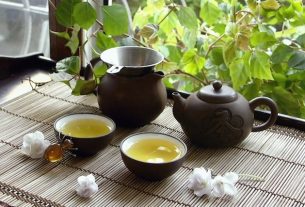Bergamot essential oil has antimicrobial, anti-inflammatory, analgesic, antidepressant and anxiolytic properties, because it is rich in bioactive compounds, such as linalool, carvacrol and bergamottin.
This essential oil is extracted from the peel of green bergamot, which is also known by the scientific name of Citrus bergamiacan be found in health food stores and is generally used in aromatherapy or applied to the skin and hair.
Because it has an intense and refreshing aroma, bergamot essential oil is also widely used in the production of perfumes, shampoos, personal hygiene products and in foods, being used as a flavoring agent.

Bergamot essential oil provides numerous health benefits, including:
1. Fights fungi and bacteria
Bergamot essential oil has antimicrobial properties, helping to combat various bacteria, such as Campylobacter jejuni, Escherichia coli O157, Listeria monocytogenes, Bacillus cereus e Staphylococcus aureuswhich can be transmitted through food and cause infection and/or food poisoning.
Furthermore, this essential oil also combats fungi of the genus Candida sppmainly Candida albicans, Candida glabrata, Candida krusei, Candida tropicalis e Candida parapsilosiswhich have been associated with vaginal candidiasis.
2. Decreases pain and inflammation
Bergamot essential oil contains some bioactive compounds, such as linalool, bergamottin and carvacrol, which have antioxidant, analgesic and anti-inflammatory properties that help reduce inflammation and muscle pain.
3. Helps treat acne and seborrhea
Because it has astringent, bactericidal, anti-inflammatory and antifungal properties, bergamot essential oil helps reduce skin oiliness, making it an excellent option to complement the treatment of acne and seborrhea.
4. Improves anxiety and stress
Bergamot essential oil acts on the central nervous system and has relaxing and calming properties. Therefore, using this essential oil can improve symptoms of anxiety, stress and mood swings. Discover other essential oils that help improve anxiety.
How to use
There are several ways to use bergamot oil, which can be used in aromatherapy, inhalation or applied to the skin.
To use on the skin, it is important to dilute 3 drops of bergamot essential oil in 1 tablespoon of vegetable oil, such as almond, coconut or jojoba oil, for example, and then apply to the skin or scalp.
Furthermore, the essential oil can also be inhaled, using an aromatic necklace or diffuser. See how to use essential oils correctly.
Side effects and contraindications
Bergamot essential oil should not be ingested. Furthermore, this oil is photosensitive and can cause burns and blemishes on the skin, and it is recommended to avoid exposure to the sun for 6 hours after applying this essential oil to the skin.
Furthermore, in some people, bergamot essential oil can cause skin hypersensitivity or allergies, leading to signs and symptoms such as redness, burning sensation and itching in the affected area.
As there are no studies that confirm the effects of bergamot on children under 12 years of age, pregnant or breastfeeding women, it is important to consult a doctor before using bergamot essential oil.
Bibliography
- PENG Sun et al. Essential Oil and Juice from Bergamot and Sweet Orange ImproveAcne Vulgaris Caused by Excessive Androgen Secretion. Hindawi Mediators of Inflammation. 1-10, 2020
- NAVARRA Michele et al. Citrus bergamia essential oil: From basic research to clinical application. Frontiers in Pharmacology. 36. 6; 1-7, 2015
- SÁ, S, Rita de Cássia et al. Analgesic-Like activity of essential oil constituents: an update. Molecular Sciences. Vol.18. 1-40, 2017
- NAUMAN Mirielle et al. Clinical application of bergamot (Citrus bergamia) for reducing high cholesterol and cardiovascular disease markers. Integrative Food, Nutrition and Metabolism. 6. 2; 1-12, 2019
- DESTROY Laura et al. Bergamot Essential Oil Attenuates Anxiety-LikeBehaviour in Rats. Molecules. 22. 1-11, 2017

Sign up for our newsletter and stay up to date with exclusive news
that can transform your routine!
Warning: Undefined array key "title" in /home/storelat/public_html/wp-content/plugins/link-whisper-premium/templates/frontend/related-posts.php on line 12
Warning: Undefined array key "title_tag" in /home/storelat/public_html/wp-content/plugins/link-whisper-premium/templates/frontend/related-posts.php on line 13



